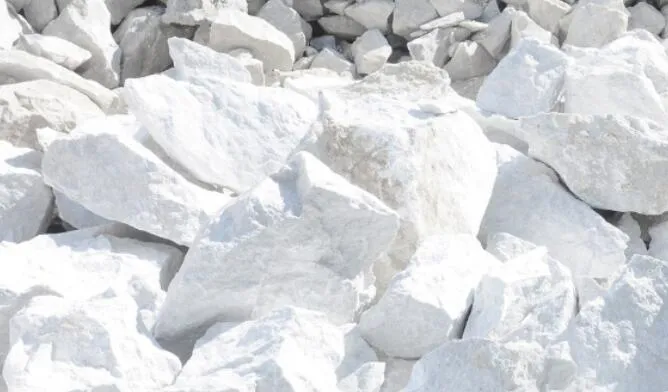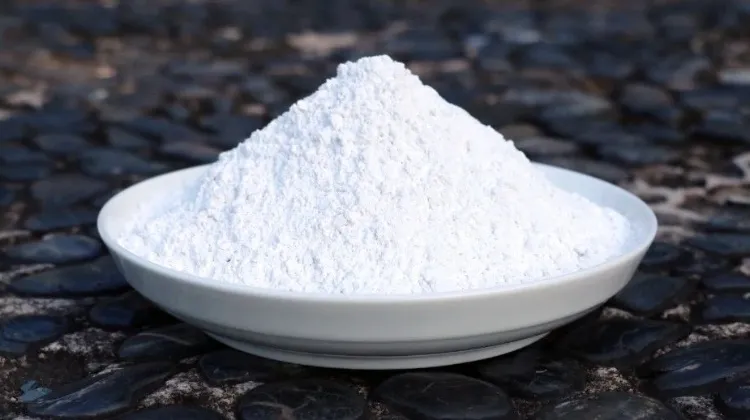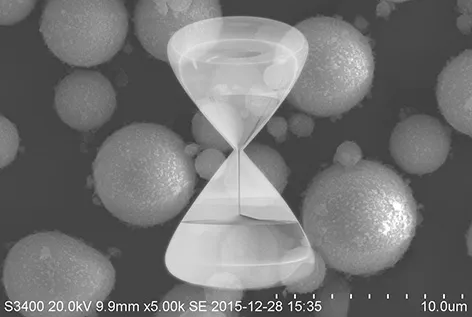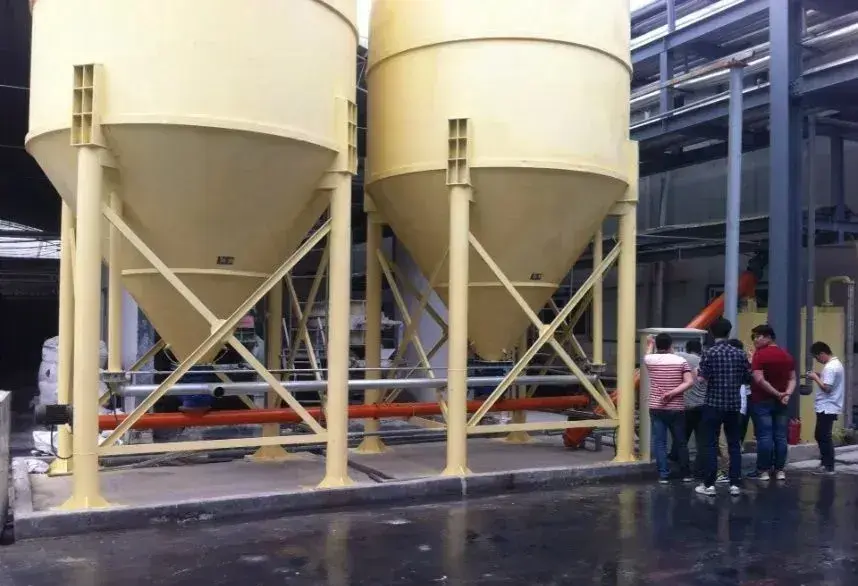Limestone is a sedimentary rock primarily composed of calcite (calcium carbonate, CaCO3). It forms in marine or lake environments through biological and chemical processes.
Characteristics and types of limestone are as follows:
- Color: Generally gray, white, yellow, or brown, depending on impurities.
- Texture: Even and dense, but can contain fossils or other rock fragments.
- Structure: Can be granular, crystalline, or bio-clastic.
- Hardness: Mohs hardness is around 3, relatively soft.
- Solubility: Easily dissolves in acid, producing carbon dioxide bubbles.

Based on different standards, processed limestone can produce various products, widely used in different industries.
Portland Cement

Limestone is crushed, finely ground, and mixed with clay and other additives. The mixture is then crushed, screened, and further ground to the appropriate particle size. The powdered material is sent into a rotary kiln and calcined at a high temperature (around 1450°C) to form cement clinker. After adding an appropriate amount of gypsum, the clinker is ground into a very fine powder, resulting in the finished cement.
Building Stone
Used as a foundational material for buildings, such as foundations and walls. In particular, inexpensive limestone enhances structural stability and reduces costs for civil buildings.
glass

In glass manufacturing, limestone is mixed in proportion with soda ash (Na2CO3) and quartz (SiO2), then melted at high temperatures. The reaction produces calcium silicate (CaSiO3) and carbon dioxide (CO2), resulting in ordinary glass.
Iron ore smelting additives
Limestone is used as a desulfurizing agent in the ironmaking process. It helps remove silica (SiO2) from iron ore, forming low-melting calcium silicate (CaSiO3) to facilitate impurity removal from molten iron.
Quicklime (CaO)
Limestone is calcined at high temperatures (900°C – 1300°C) to produce calcium oxide (CaO), or quicklime. This process is usually completed in a vertical kiln or rotary kiln. It is used as a building material, drying agent, and in applications such as soundless explosives and dehydrating agents for food and pharmaceuticals.
Calcium hydroxide (Ca(OH)2)
Quicklime reacts with water to form calcium hydroxide (Ca(OH)2), also known as slaked lime. This process occurs in specialized digesters where temperature and humidity conditions are controlled. It is used in pesticide production, soil acidification improvement, and acid wastewater treatment.
Ground calcium carbonate (GCC)

Limestone extracted from mines is initially crushed, then further ground into fine powder using a ball mill or other grinding equipment. Air separators classify the powder to achieve the desired particle size distribution. Due to its high chemical purity, inertness, and thermal stability, it is used as a filler in industries like paper, plastics, rubber, and coatings.
Precipitated calcium carbonate (PCC)
Chemical preparation: High-purity limestone is used as the raw material. It is calcined to produce quicklime, which is then digested to form calcium hydroxide slurry. Under a carbon dioxide atmosphere, the calcium hydroxide is converted into calcium carbonate crystals. The final product is obtained through filtration, washing, and drying processes.
Due to its fine particle size and large surface area, PCC is suitable for applications in rubber, plastics, paper, building materials, inks, and daily chemicals.
Casting sand
Limestone with an appropriate particle size range is crushed and screened to meet the requirements for casting sand. Binder and other additives are added as needed and thoroughly mixed with limestone sand. This casting sand outperforms quartz sand, improving the surface quality and finish of castings, while reducing the risk of occupational diseases like silicosis.
Desulfurization absorbent
Limestone is crushed and ground into fine powder to efficiently capture SO₂ gas during the desulfurization process. The limestone powder is mixed with water to form a slurry, which is used in wet flue gas desulfurization systems. The powdered limestone acts as an absorbent in desulfurization towers, where it reacts with sulfur dioxide in the flue gas to remove SO₂.
Active lime, passive lime
Active lime is a high-quality metallurgical additive, while passive lime has excellent hygroscopic and blowing properties. Both are primarily used in the steel industry as additives for sintered ore, slagging agents, and desulfurizing and dephosphorizing agents in molten iron pretreatment.
Pharmaceutical-grade calcium carbonate
Calcium carbonate that meets strict standards is used as a nutritional additive in calcium supplements, multivitamin tablets, and as a fortifier in the food industry.
Food-grade calcium carbonate
High-purity limestone that meets food safety standards is selected as raw material. It undergoes ultrafine grinding, purification, and disinfection processes, ensuring product safety and purity. It is widely used in the modern health food industry, such as dairy products, beverages, and pastries, to increase calcium content and improve taste.
High-purity limestone that meets food safety standards is selected as raw material. It undergoes ultrafine grinding, purification, and disinfection processes, ensuring product safety and purity. It is widely used in the modern health food industry, such as dairy products, beverages, and pastries, to increase calcium content and improve taste.
conclusion
The above lists the main product types derived from limestone processing. Each product plays an indispensable role in its respective application field due to its unique properties and functions. With technological advancements, limestone deep processing techniques continue to improve, making its derivatives more diverse and meeting the growing and varied market demands.
epic powder
Epic Powder, 20+ years of work experience in the ultrafine powder industry. Actively promote the future development of ultra-fine powder, focusing on crushing,grinding,classifying and modification process of ultra-fine powder. Contact us for a free consultation and customized solutions! Our expert team is dedicated to providing high-quality products and services to maximize the value of your powder processing. Epic Powder—Your Trusted Powder Processing Expert !

